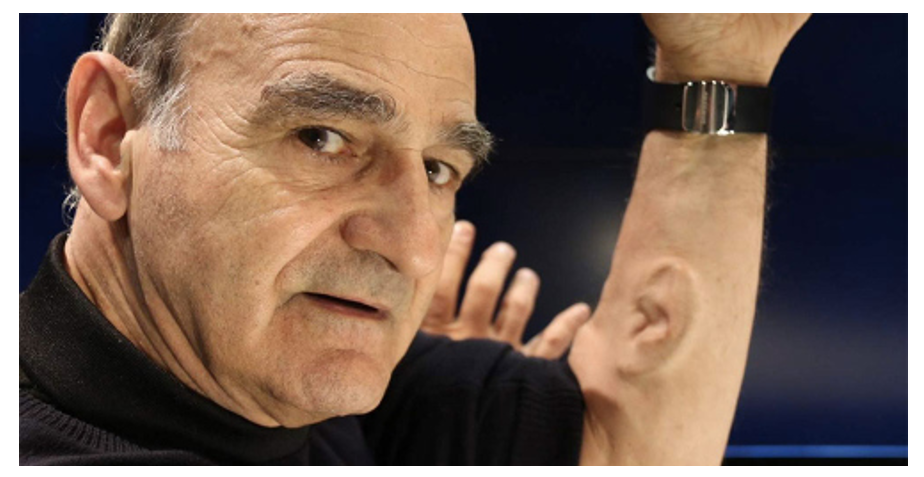
To my shame, I only recently learned about Science art. I learned, by the way, from Nastya Chetverikova's wonderful podcast “ Art for Boys ”. If you want to plunge into the world of music, culture and art in a fun and easy way, without snobbery and mournful, monotonous rebuffs, feel free to subscribe to her podcast or buy a book of the same name, you will not regret it.
Under the cut are five mind-blowing stories, for those who, like me, believe that the world is ruled by "Dementia and Courage".
What is Science art?
Science art is a direction of contemporary art, where an artistic image is brought to life with the help of modern technologies, materials and the latest expressive means based on scientific methods, developments and achievements; it is a kind of integration of two spheres of human activity, on the one side of which there are scientists, on the other - artists.
That is, by crossing a snake and a hedgehog in a halo of a golden 3D augmented reality frame, you have every chance to leave your indelible mark on the field of Science art.
Ear on the palm of the forearm
Have you heard Soso Pavliashvili's song "The Sky in the Palm "? So imagine if instead of “Sky” the first word was “Ear”. Yes, yes, in the 90s, a Cypriot-Australian artist-auctioneer, author of art performances named Stelios Arcadiu (Stelarc) decided to grow a third ear on his hand. And I must say, by 2006, he was very successful in this strange desire.
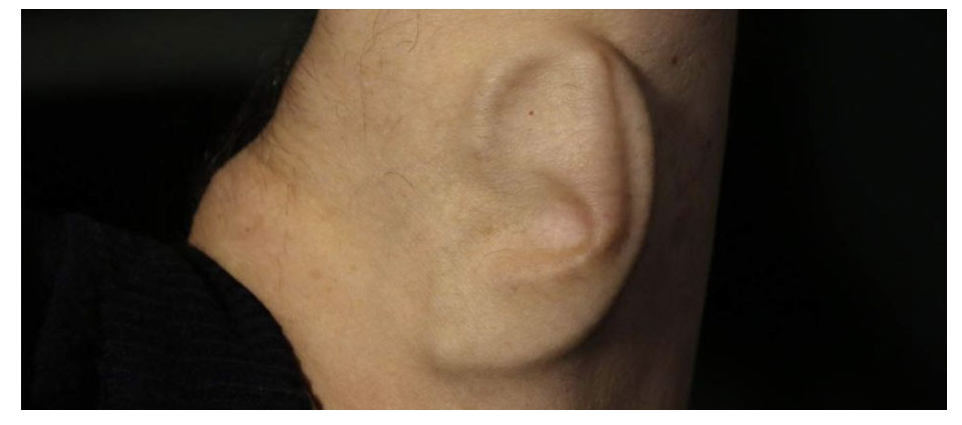
About how everything was arranged there from the inside, they already wrote in detail on Habré , for which many thanks to the author of the material, the Habravchanin, Artem Malyshev.
Here is what the artist-uncle himself said about this:
« — , . — . , . GPS , . -… , - - ...».
The Ear in Hand project won a prize for Stelark at the 2010 Ars Electronica in Austria. Honestly, I will say that pleasure, in my opinion, is dubious , but, apparently, I still need to grow up to modern art.
By the way, around the time of the aforementioned performance I had a personal meeting with Ivan Okhlobystin . And then he had a brilliant idea to make Wi-Fi transmitters out of people. So that they can automatically distribute the Internet. Such is the cycle of data in nature. Thank God, Ivan Ivanovich did not offer anyone to grow anything additionally. And so you might as well have grabbed some European Art Prize.
Hip-hop germs and viruses
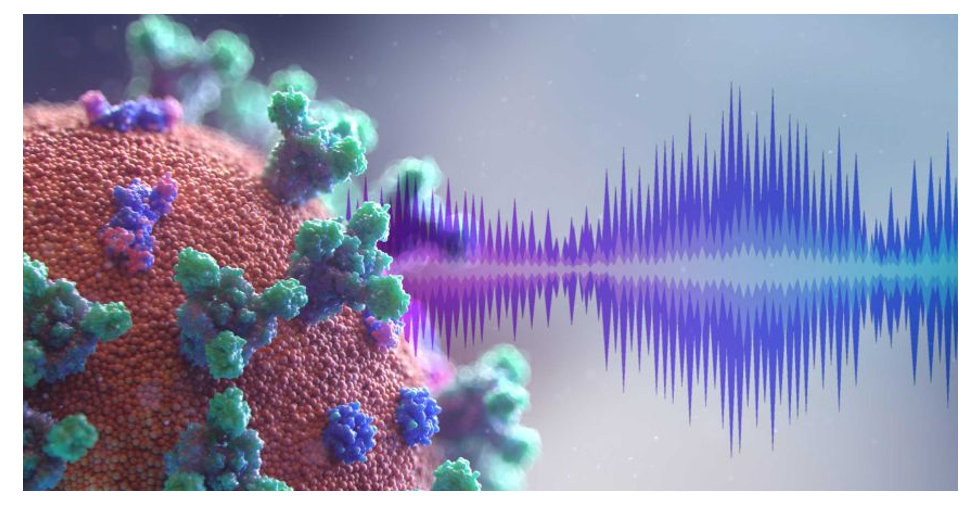
In 2020, scientists from the Massachusetts Institute of Technology created the melody of the already crowded coronavirus aka COVID-19 . The researchers assigned their own instrument to each protein of the virus, and assigned a note to the building blocks of proteins (amino acids) - and the virus began to play.
Here for almost 2 hours of this zaborist coronavirus cunning. World hit. Fells on the spot. By the way, only three instruments are used in the work - a 13-string Japanese koto, bells and a flute.
It is all the more surprising that this is not the only example of such an exotic direction of art. There is a whole area of bioart. Its founder Joe Davis even released Bacterial Radio.
In this work, Davis produced electrical circuits by leaching germanium and platinum with genetically modified bacteria that became part of these circuits. These circuits, along with external components (telephone headset, antenna, etc.), formed the basis of the AM radio detector.
It is all the more surprising that on the Russian land such craftsmen are found in abundance. You've probably heard something about Lev Theremin ? If not, google what a theremin is .
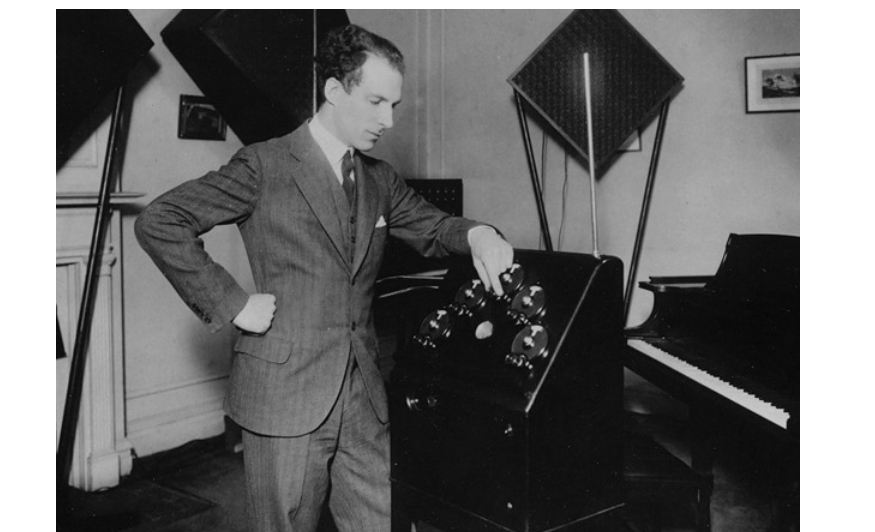
So, according to the recollections of Bulat Galeev, a friend and colleague of this wonderful Russian inventor, physicist and musician, in the last years of his life Theremin worked closely on the problem of immortality. For his experiments with human cells, he built a "cell incubator", with the help of which he accidentally found out how to hear the voices of spermatozoa: "... after all, all these creatures, you know, dance and sing under a microscope." Singing sperm, what could be better.
I'm a little horse now
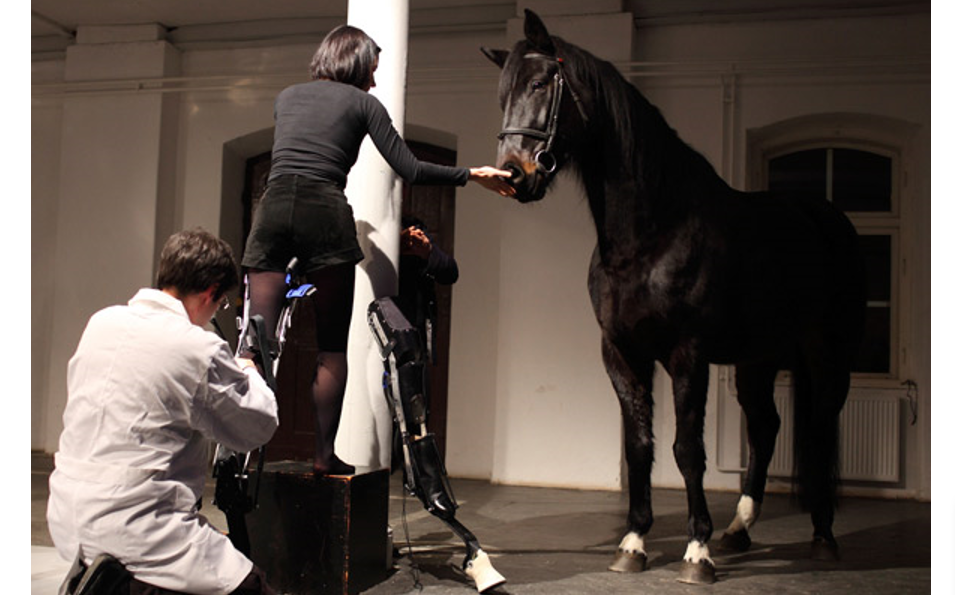
In 2011, French actionist artist Marion Laval-Jeante injected herself with horse blood serum. In fact, she injected herself with small doses of immunoglobulin for a long time. So as not to immediately say goodbye to the grateful fans of her talent from the anaphylactic shock she suddenly acquired.
The girl did not become a centravrom, but, as she herself said, she gained strength in her body. The main thing, of course, is not to laugh and clatter over the neighbors' heads at night.
My flies paint curls
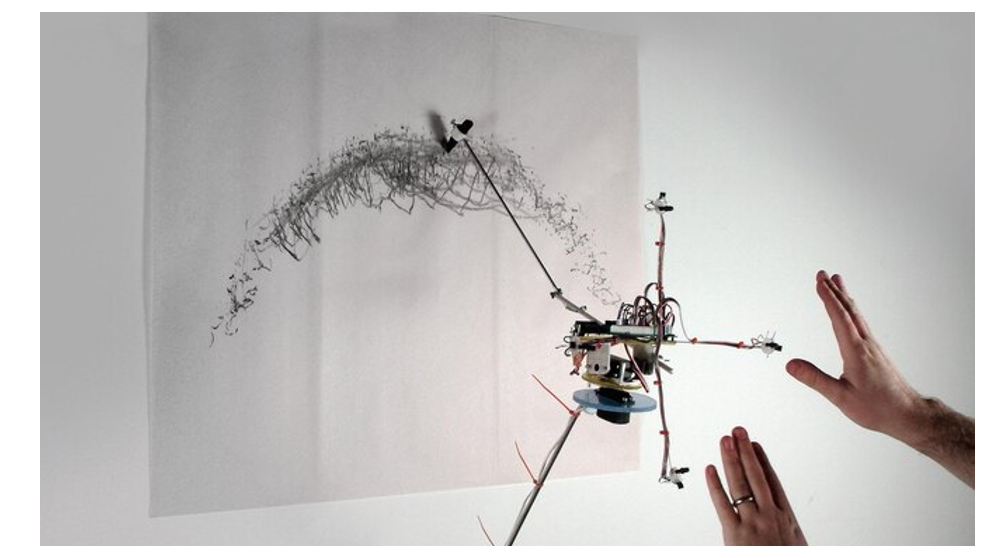
Artist David Bowen is some kind of vigorous mixture of Doctor Evil, Leo da Vinci and Russian physiologist Ivan Petrovich Pavlov. He has a whole bunch of really cool technically advanced art projects .
Tell me, what should a person have in his head to come up with what is described next?
Fly Drawing Device ("Device for drawing flies"). In a cylindrical container of about 25 x 50 cm, there are about 200 flies, which are fed once a week from milk and sugar.
In such conditions, they can live up to 40 days. In confined spaces, flies tend to climb as high as possible. From the top of the container, an insect can enter a small, well-lit chamber located above. The light bulb warms the flies, attracts them to climb into the camera, and also illuminates the four photoresistors. Each photoresistor is responsible for its direction - up, down, right or left.
Crawling over the photoresistors, one or more flies cast shadows on them, sending electrical signals to the microcontroller, which in turn controls two servos of a mechanical manipulator with a wax pencil. One servo is responsible for horizontal movements of the manipulator, the other - vertically. Active flies create chaotic impulsive graphic compositions.
When all the flies leave the camera with photoresistors, the electric motor rewinds the paper roll by about a meter - and a blank sheet of paper is waiting for new winged creators.
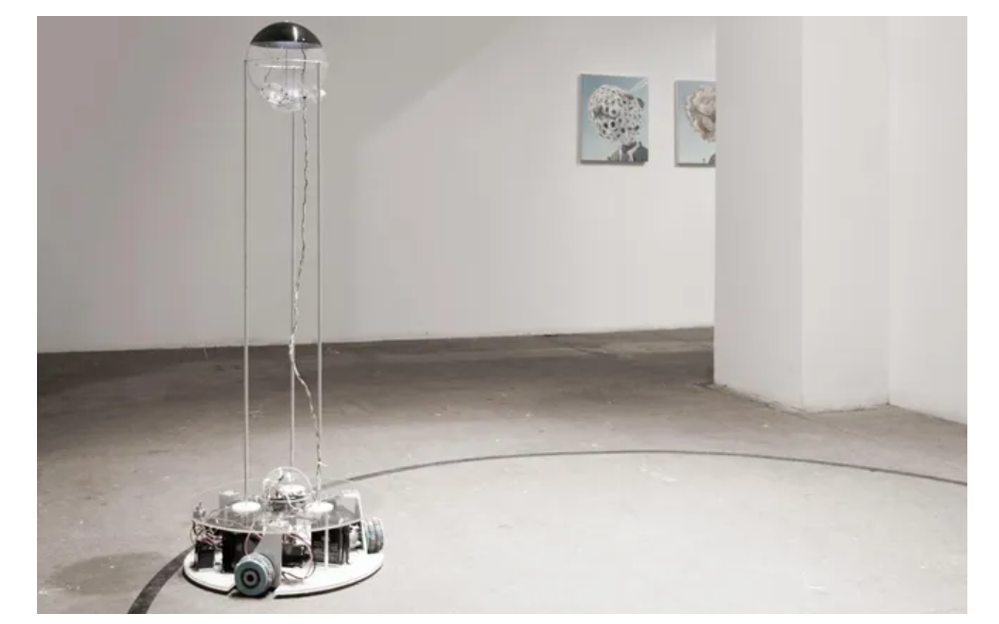
My skin sings and paints. Well, she's also a little bit of gold
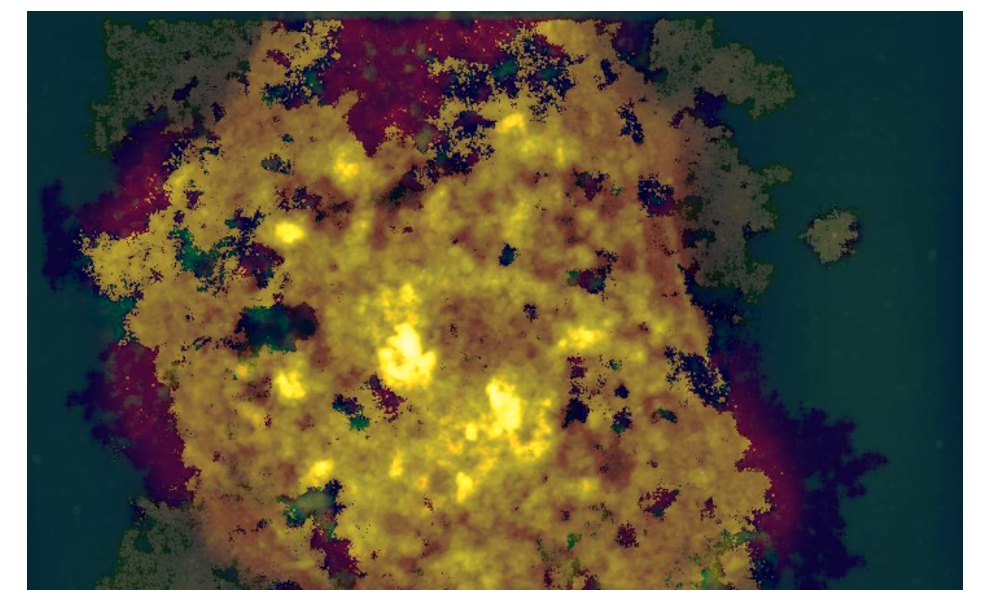
The mythical king Midas wished that everything he touched would turn to gold. As you know, this did not bring him much happiness.
In the 2007 Midas project by Paul Thomas, a gold-plated sensor and an atomic force microscope allow human skin cells to "sound" and generate images.
The project explored the trans-media space between leather and gold. The data recorded using an atomic force microscope (AFM) were analyzed. The result is a visual and sound installation that reinforces certain aspects of the experience at the nanoscale.
This metonymic work is based on research developed at SymbioticA and the Curtin University of Technology Nanochemistry Research Institute.
Bonus track
In fact, on the topic of Science art, as it turned out, a whole bunch of materials with examples. If you want to surprise yourself and find a little more texture for fascinating table conversations, I would advise you to read a few thematic articles here , here and here . Quite a bit of a read, I tell you, reading. Engoite.